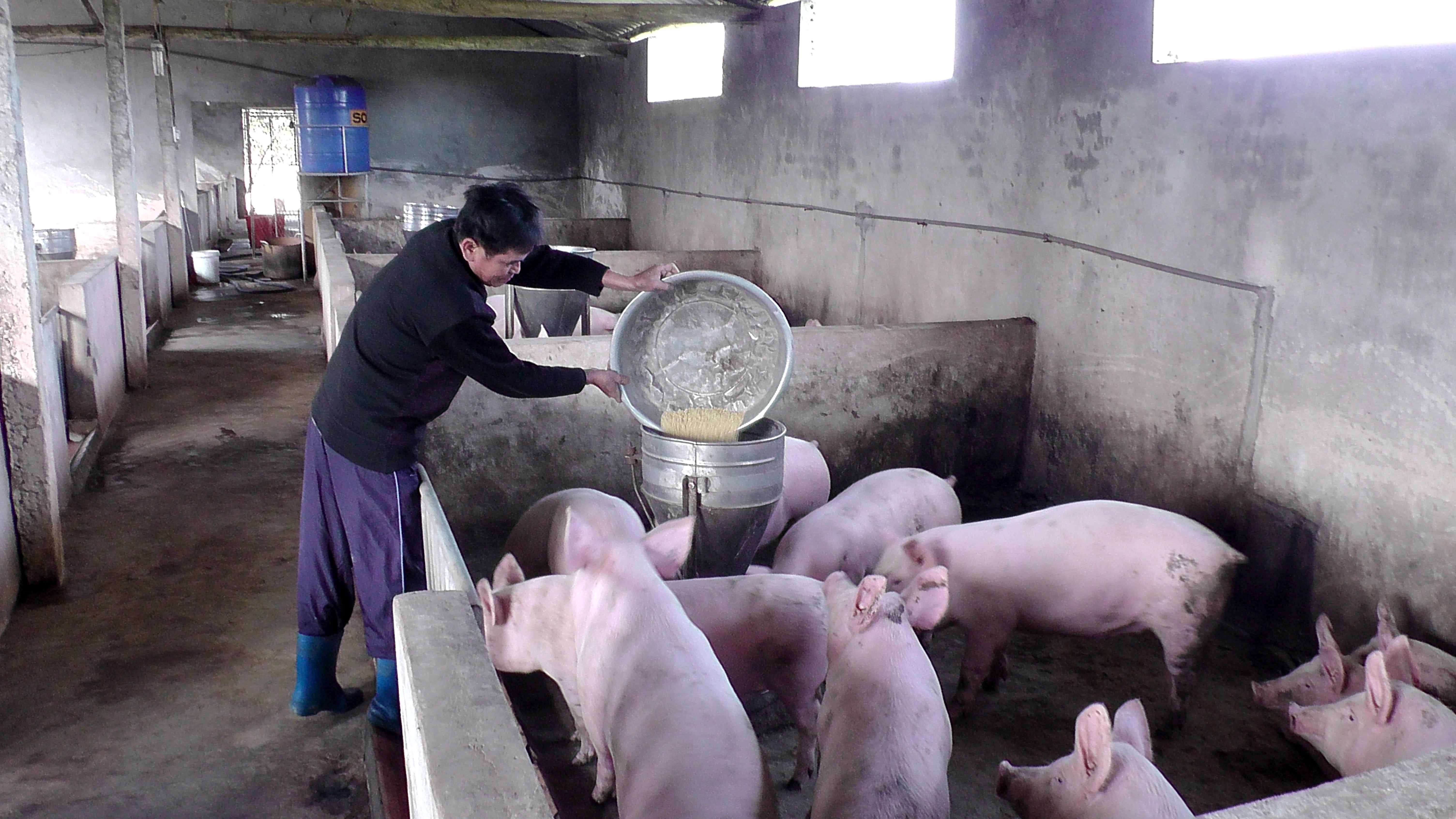Promoting internal strength and shifting in the right direction in Ma Thanh
(Baonghean) - Before 2010, Ma Thanh was a poor mountainous commune in Yen Thanh district, but now that countryside is improving day by day, moving forward by the people's own strength. That is the result of the Party's will and the people's will.
 |
| The pig farming model of Mr. Mai Van Ho's family in Dong Duc hamlet is large in Ma Thanh commune. Photo: Thai Duong |
In 2013, after completing the land consolidation work, with the help of the local government, veteran Tran Dinh Dien, hamlet 1, Ma Thanh commune, boldly took on the contract of 1.3 hectares in Dong Bau area to establish a farm. Currently, in the barn area, there are always 6 cows, hundreds of poultry, and fish ponds. Especially in the past 3 years, he has switched to frog farming, selling an average of 5 tons of commercial frogs to the market each year. "Thanks to knowing how to choose the right breed of livestock, combining the use of agricultural products to reinvest in livestock farming, thus reducing costs, rapidly increasing production efficiency, ensuring an annual income of over 200 million VND" - Mr. Dien said.
Mr. Phan Van Thanh and his wife, Ms. Nguyen Thi Long, in hamlet 6, also chose the path out of poverty through the comprehensive farm economy. After 4 years of investment and construction, on an area of 2 hectares, the couple has 3 rows of barns, 4 fish ponds, 8 breeding cows, 1,000 laying ducks and thousands of pigeons... Revenue reached 2.4 billion VND, minus investment costs, the profit is approximately 500 million VND per year. These are just 2 of the many poor households in Ma Thanh commune who have known how to overcome difficulties to rise up and become rich legitimately right on their homeland.
Being a semi-mountainous commune, in addition to 345 hectares of agricultural land, Ma Thanh also has 230 hectares of hilly land and forest land. The reason why people's lives were poor in the past was because the main source of income mainly depended on agricultural production, with two rice crops a year being unstable, the available potential had not been exploited; the work of creating jobs for workers had not been given due attention...
In line with the Resolution of the 21st Party Congress of the Commune, term 2015-2020, the Commune Party Committee has proposed 2 plans, 2 thematic resolutions and 10 key projects in local socio-economic development. In particular, in the agricultural sector, scientific and technical advances and mechanization in the fields have been promoted, bringing rice productivity to 6.3-6.5 tons/ha; actively developing agro-forestry, in which livestock is the key industry, accounting for 53% of agricultural production, bringing the total social income in 2017 to 236 billion VND.
 |
| Rural traffic movement in Hon Nen hamlet, Ma Thanh commune. Photo: Thai Duong |
In particular, to solve the problem of employment for surplus rural labor, in recent years, the Ma Thanh commune government has had many policies to support and encourage farmers to establish 35 farm models; many small-scale industrial, trade and service establishments have been formed. Currently, the whole commune has 1,450 children working abroad.
Up to now, the average income of Ma Thanh people has been raised to 34.5 million VND/person/year; the poverty rate has decreased to below 5%. Economic development is an important premise for Ma Thanh to promote its internal strength in building new rural areas. The commune has achieved 15/19 criteria for building new rural areas and is determined to reach the finish line in 2018.
Secretary of the Ma Thanh Commune Party Committee Phan Minh Trong said: “In building new rural areas, the commune pays special attention to economic development, improving people's income and living standards, striving to become a well-off commune of the district. In particular, we continue to focus on shifting the economic structure in the right direction, gradually creating a chain of agricultural commodity production.”
